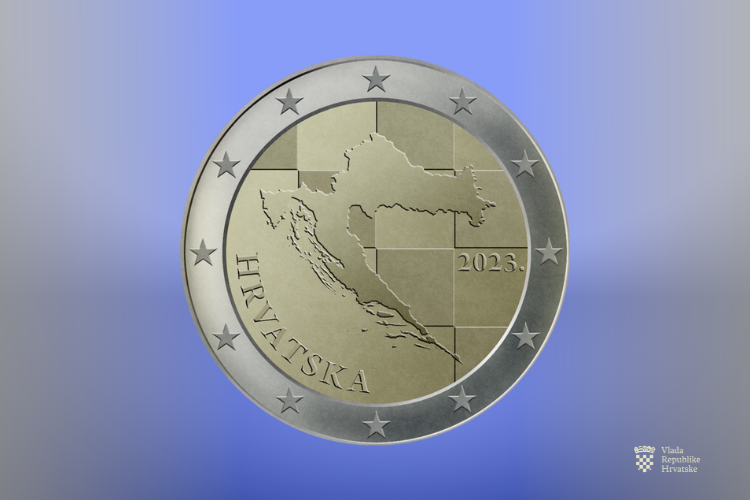


One of those legal acts adopted by the European Union's Economic and Financial Council (Ecofin) sets the conversion rate between the euro and the Croatian kuna at 7.53450 kuna for 1 euro. The rate corresponds to the current central rate of the kuna in the exchange rate mechanism (ERM II).
Another of the three acts concerns the decision on the adoption of the euro by Croatia, while the third is an amendment to a regulation welcoming Croatia as the 20th member of the euro area as of next year.
The legal acts also make it possible for the Croatian National Bank (HNB) governor to become an observer in the European Central Bank's governing council in September, and on 1 January 2023, the HNB Governor becomes ta full member of that council.
The relevant documents were today signed by Zbyněk Stanjura, the minister of finance of Czechia, which currently holds the rotating EU presidency..
In attendance at the ceremony were the ECB Executive Board President Christine Lagarde, European Commission Vice President Valdis Dombrovskis, the European Commissioner for Economy, Paolo Gntiloni, and Croatia's Finance Minister Zdravko Marić.
The chairman of the Eurogroup, Irish minister Paschal Donohoe, addressed the ceremony via a video link from Dublin.
All the participants in the ceremony described this as Croatia's historic achievement and that both the European Union and the common currency continued to be attractive.
The EC Executive Vice President Dombrovskis said that the entry into the euro area "will complete Croatia’s full integration into the European Union less than a decade after its accession."
"Croatia has shown great commitment and perseverance in meeting the necessary conditions for joining the euro and achieving a high degree of sustainable economic convergence" he stated as carried on his web site.
"This was achieved when Croatia also had to cope with the setbacks of earthquakes and impact of the COVID pandemic.
"Croatia’s hard work and ownership throughout the euro accession process confirms that the euro is an attractive, resilient and successful global currency.
"Our trusted currency union is a great asset for Europe," he underscored
"As Croatian goods and services become more competitive, this should lead to more jobs and higher living standards: good news at a time when Europe is grappling with high inflation," the EC Executive Vice President said.
The Commissioner for Economy, Paolo Gentiloni, said that Croatia had passed an amazing journey from having fought a war some 30 years ago, which was the first war on Europe's soil since the Second World War, to the EU membership which it joined in 2013 to enter the euro area now.
This is an amazing result, we are celebrating the strengthening of our Union today, said Gentiloni.
Donohoe also praised Croatia's achievements and performance of the outgoing minister Marić, who attended the Ecofin in his capacity as Croatia's minister for the last time.
Text: Hina